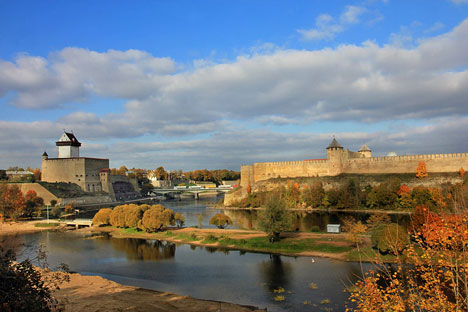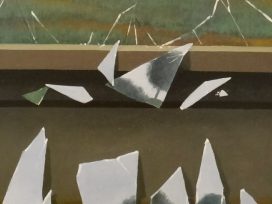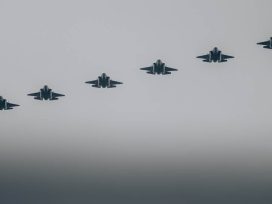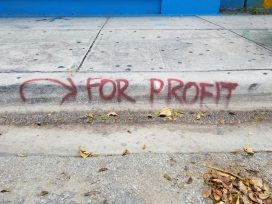The platform, entitled “Neighbourhood in Europe: Prospects of a common future”, supports five conferences conceptualized to generate an ongoing series of debates. The
first conference took place in October 2015 in Narva, Estonia, where participants assembled at the University of Tartu’s Narva College to discuss a range of issues relating to identity and literature. Highlights included a panel discussion on diverse multilingual settings in Estonia, Russia and Ukraine. The moderator was
Manfred Sapper of
Osteuropa, and regular Eurozine contributor
Volodymyr Kulyk was joined by legal scholar
Marju Luts-Sootak, historian
Anti Selart, and the semiotician and literary scholar
Mihhail Lotman.
The next conference takes place from 7 to 10 December in Minsk, Belarus, under the title Diverse identity experiences – one nation? The focus here is on internal and external perceptions of national borders, as well as how such borders are transcended by various constellations of community, identity and everyday life. The event is organized jointly with Olga Shparaga and Alexey Bratochkin from the European College of Liberal Arts in Belarus, in close cooperation with the “Ў” gallery of contemporary art in Minsk.

The Narva River flows between Hermann Castle in Narva, Estonia (right) and the Ivangorod Fortress in Russia (left). Photo: Aleksander Kaasik. Source: Wikimedia
The same day proceedings wrap up in Minsk, the third conference in the series opens in Kharkiv, Ukraine, where discussion revolves around perspectives on living together in regions of conflict. The Kharkiv event runs until 12 December; partners include the Ukrainian author Serhii Zhadan and the philosopher Yaroslava Bondarchuk, as well as the Vasilkovsky Gallery. Further conferences are scheduled to take place in 2016 in St. Petersburg and in Vyborg in Russia, with the focus of the latter being the Finnish-Russian neighbourhood in Karelia.
Eurozine is the platform’s media partner; the initiators are the S. Fischer Foundation, the German Academy of Language and Literature, and Allianz Cultural Foundation.








